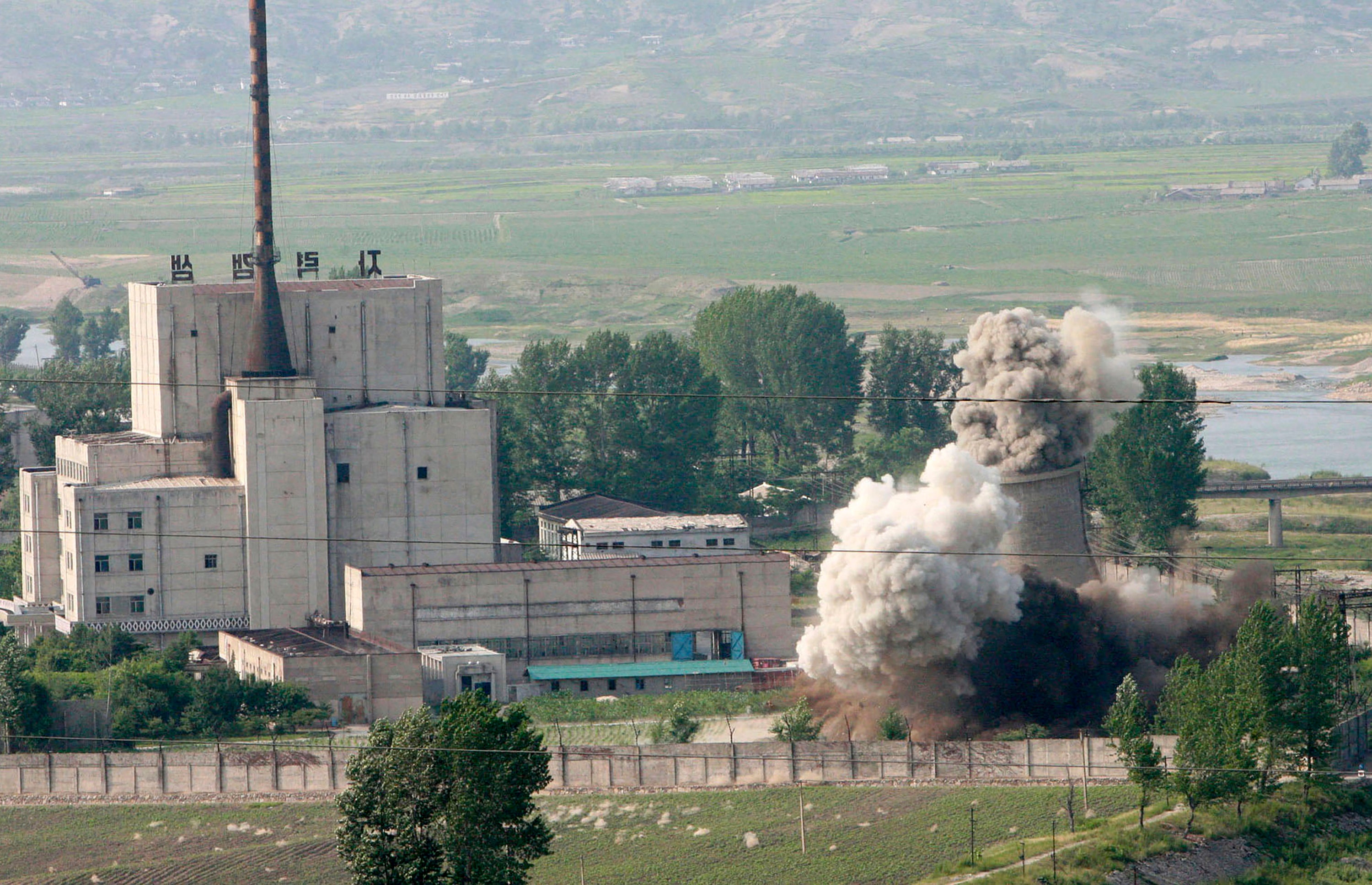IAEA: N Korea appears to have resumed nuke reactor operation
The U.N. atomic agency says North Korea appears to have restarted the operation of its main nuclear reactor used to produce weapons fuels

Your support helps us to tell the story
From reproductive rights to climate change to Big Tech, The Independent is on the ground when the story is developing. Whether it's investigating the financials of Elon Musk's pro-Trump PAC or producing our latest documentary, 'The A Word', which shines a light on the American women fighting for reproductive rights, we know how important it is to parse out the facts from the messaging.
At such a critical moment in US history, we need reporters on the ground. Your donation allows us to keep sending journalists to speak to both sides of the story.
The Independent is trusted by Americans across the entire political spectrum. And unlike many other quality news outlets, we choose not to lock Americans out of our reporting and analysis with paywalls. We believe quality journalism should be available to everyone, paid for by those who can afford it.
Your support makes all the difference.North Korea appears to have restarted the operation of its main nuclear reactor used to produce weapons fuels, the U.N. atomic agency said, as the North openly threatens to enlarge its nuclear arsenal amid long-dormant nuclear diplomacy with the United States
The annual report by the International Atomic Energy Agency refers to a 5-megawatt reactor at the North’s main nuclear complex in Yongbyon, north of Pyongyang. The reactor produces plutonium, one of the two key ingredients used to build nuclear weapons along with highly enriched uranium.
“Since early July 2021, there have been indications, including the discharge of cooling water, consistent with the operation of the reactor,” said the IAEA report dated Friday.
The report said there were indications of the operation of Yonbyon’s radiochemical laboratory from mid-February to early July this year. It said this period of operation is consistent with previous reprocessing campaigns announced by North Korea of irradiated fuel discharged from the reactor. The laboratory is a facility where plutonium is extracted by reprocessing spent fuel rods removed from reactors.
“(North Korea's) nuclear activities continue to be a cause for serious concern. Furthermore, the new indications of the operation of the 5-megawatt reactor and the radiochemical laboratory are deeply troubling,” the IAEA said.
The IAEA has not had access to Yongbyon or other locations in North Korea since the country kicked out IAEA inspectors in 2009. The agency said it uses satellite imagery and open source information to monitor developments in North Korea’s nuclear program.
The Yongbyon complex also produces highly enriched uranium, the other key nuclear fuel. The IAEA report said “there were indications, for a period of time, that the reported centrifuge enrichment facility was not in operation” though regular vehicular movements were observed.
The complex, which North Korea calls “the heart” of its nuclear program and research, has been at the center of international concerns for decades. It’s not clear exactly how much weapons-grade plutonium or highly enriched uranium has been produced at Yonbyong and where North Korea stores it.
In early 2019, North Korean leader Kim Jong Un offered to dismantle the entire complex if he won extensive sanctions relief during a summit with then-President Donald Trump. But the Americans rejected Kim’s offer because it would only be a partial surrender of his nuclear capability.
North Korea is believed to be running multiple other covet uranium enrichment facilities. According to a South Korean estimate in 2018, North Korea might already have manufactured 20-60 nuclear weapons as well.
In recent months, North Korea has warned it would expand its nuclear program if the United States doesn’t withdraw its “hostile” policy on the North, in an apparent reference to U.S.-led sanctions and regular U.S.-South Korean military drills. Earlier this month, Kim’s powerful sister, Kim Yo Jong, said North Korea would bolster “absolute deterrence” to cope with intensifying U.S. threats.
Lee Jong-joo, spokesperson of South Korea’s Unification Ministry, said Monday that South Korea was closely monitoring North Korea’s nuclear and missile activities along with the United States. But she declined to comment on whether Seoul was seeing signs that the North was reactivating its nuclear facilities.
__
Associated Press writer Kim Tong-hyung contributed to this report.